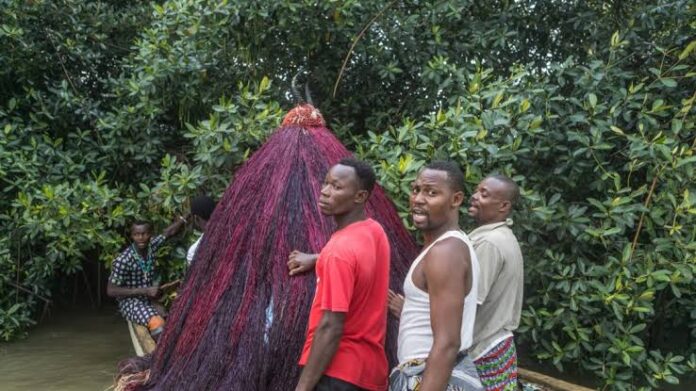The banks and delta of the Mono River in Benin are home to mangrove swamps which harbour fish and rare wild birds — and some are deemed sacred.
The government has tried to protect them by imposing bans on overfishing and felling for firewood. But it has discovered that voodoo is more powerful than threats and is now seeking to co-opt traditional elders into its conservation plans.
In the southern village of Gogotinkpon, which lives off fishing in Lake Aheme, locals regularly turn to the deities to help mark off stretches of mangroves as sacred areas.
To the rhythm of drums and gongs, they swirl and dance before voodoo masks in ceremonies to honour Zangbeto, the guardian of the night.
“This will allow the fish to multiply in peace and allow us to survive too,” said Antoinette Gnanlandjo, 70, who took part in one such ritual in a large square on the shores of the Aheme, Benin’s second largest lake.
She is a follower of voodoo, an animist practice based on respect for nature, ancestors and invisible forces.
Such ceremonies are common in villages in the 346,000-hectare (around 850,000-acre) Mono Biosphere Reserve on either side of the Mono River, which marks the border between Benin and Togo and is a magnet for nature-loving tourists.
Mangroves are tropical trees that have the unusual ability of thriving in brackish or salty water. They suck up planet-heating carbon and their underwater roots stop the land washing away.
-Advertisement-
Grab our latest Magazine, "Chief Wole Olanipekun, CFR, SAN, A man of wide horizons and deep intentions". Get your order fast and stress free.
For more details about Newswire Law&Events Magazine, kindly reach out to us on 08039218044, 09070309355. Email: newswiremagazine@yahoo.co.uk. You will be glad you did






